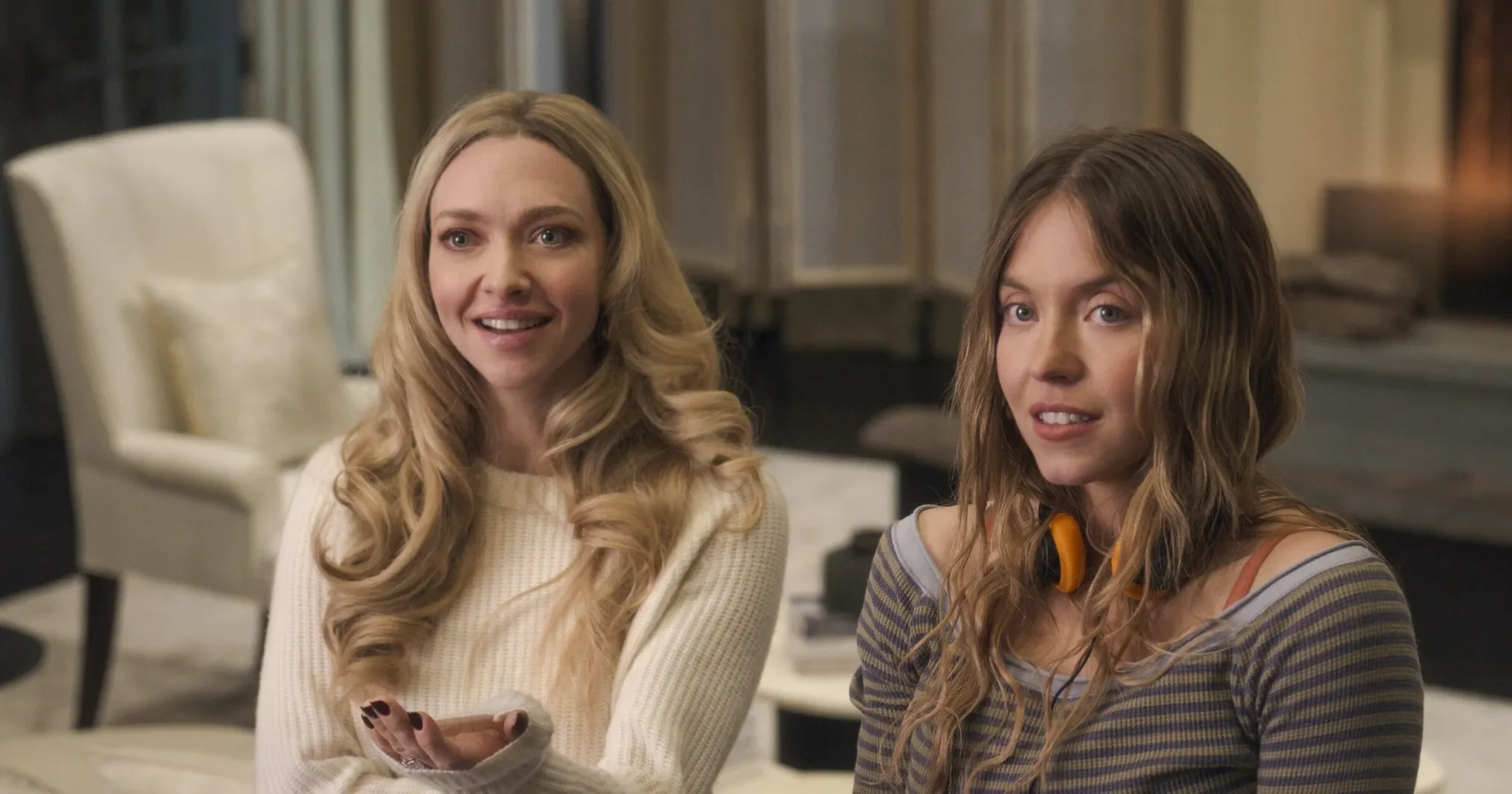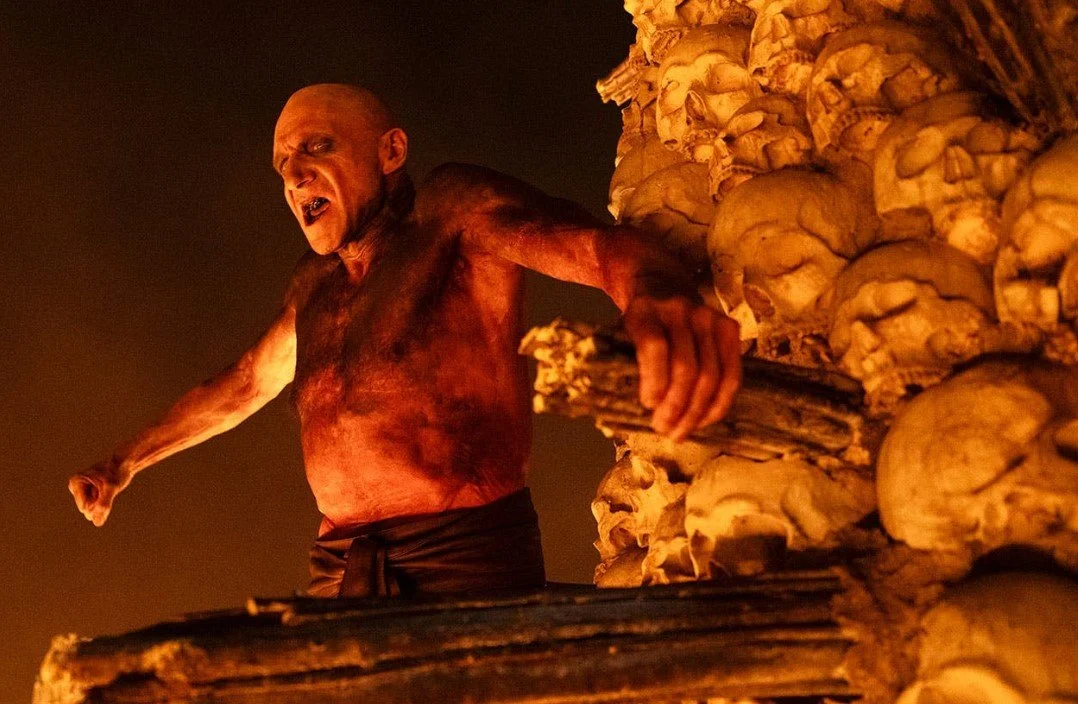‘Rabid’ REVIEW: Erik Matti delivers his own Shake Rattle & Roll mayhem—it’s uproariously fun.
‘Rabid’ REVIEW: Erik Matti delivers his own Shake Rattle & Roll mayhem—it’s uproariously fun.
The four-part horror anthology is a blast.
Philippine cinema is not a stranger to horror anthologies. One of its longest-running franchises is the Shake Rattle & Roll series, and fifteen installments later, it's viewed with both critical and audience indifference. Recent offerings have been accused of being too bland and generic, a far cry from the early installments helmed by Peque Gallaga and Lore Reyes.
This obstinate resistance to adapt to recent developments in the horror genre made the fall of the famed horror anthology inevitable, but in its ashes rose a phoenix that seemed set on filling in the void it left behind. Rabid is Erik Matti’s answer to the calls that never once came for him to direct a Shake Rattle & Roll film—and thank God he didn't since this one is an absolute delight.
Along with writer Michiko Yamamoto, the duo crafts their own four-episode horror anthology in the likes of The Twilight Zone and Black Mirror while staging itself under a COVID-19 context. The result is a shrewd, sometimes even goofy, and enjoyable film in which the whole might not be as good as the sum of its parts, but, damn, certain parts do stand out.
Rabid stars Jake Macapagal, Vance Larena, Ayeesha Cervantes, and Donna Cariaga among many.
“Kami lang ba pwede malasin”
The first and longest episode positions itself as a home invasion horror film but with a pandemic twist. Mayette (Chesca Diaz) unwittingly lets an ostensibly deaf and mute grandmother (Jay Glorioso) into their home. A slow build-up of tension simmers as Lizzie, the daughter (Ameera Johara), and Carlo, the father (Jake Macapagal), question the true intentions of the new stranger in their house.
Chaos soon ensues, and some genuinely jarring and unsettling horror presents itself. The nature of the scares lies in the complete loss of control the family experiences with their bodies. Matti finds some laughs in the absurdist situation, but the sinister aspect of it all is never lost to him.
Glorioso’s performance as the unsuspecting Lola is relentless and memorable. Her transition from a feeble and powerless beggar into a formidable figure is disturbing to see unfold. The villain reflects the disenfranchised and indigent during the pandemic, an admonition directed at the apathetic rich comfortable in their Zoom meetings and constant online deliveries.
The film also sinks its nails into the deep-rooted insecurities and domestic issues that rear their heads out during long and rigid lockdowns. Mayette and Carlo fight, Lizzie’s anxieties, and diffidence surface, all instigated by an unassailable force telling them what to do and what not to do, however irrational or rational as they may seem.
There’s a great deal of indulgence in self-inflicted terror, and as an audience, you’re just constantly wondering how the family gets out of this omnipresent nightmare. Perhaps Matti was figuring out that too along the way since the solution manifests itself in a very convenient deus ex machina.
When Dexter (Kent Gonzales) arrives as the family’s apparent savior, the film devolves into action fanfare. It’s a sequence that needs to be carried by the acting, the fake magical gibberish, and marginal visual effects. Frankly, it ended up being too much for the film’s weight.
“Iba pa din ang karne”
The second episode is a stripped-down black and white film about a seemingly flesh-eating woman named Jane (Pam Gonzales) with her husband Melvin (Vince Larena) inside a moody cave. It’s the most inconsequential of all the episodes, and it is designed to be that way. It opts for a more slow, emotive, and atmospheric mise-en-scène.
Jane’s body steadily deteriorates; we become desensitized to her condition with each succeeding zombie groan, but not Melvin. The initial disconnect is a symptom of not really becoming engaged in the connection between the two; there’s only so much you can do with a muzzled character and a projection screen for exposition.
Nevertheless, Larena's feelings of desperation, loneliness, and frustration are effectively communicated on-screen. If the film is a brief metaphor for the unrecognizable monster people can become due to sickness, then Melvin represents the antidote to that monstrosity. He is resilient and empathetic, traits that might be instantly recognizable to those who have had to take care of someone in the pandemic.
Vance Larena and Pam Gonzales slow dancing from the “Iba pa ding ang karne” segment.
Long shots allow Larena to move around and be physical in his role alongside a freakish zombie. It’s reminiscent of Swiss Army Man and Oda Sa Wala, films that depend on their leads to make the most out of their passive and affectless companions. Gonzales unsurprisingly does her job well portraying a ferocious being worthy of the tinge of humanity Larena’s character offers to her.
As the shortest entry of them all, it lacks the teeth to gnaw at deeper themes aside from its surface-level flesh. But, its stylistic flourishes and intimate composition warrant appreciating it as a fully-realized short film.
"Shit Happens"
Disgust and horror go hand in hand, and this episode definitely takes pride in its revolting imagery. The affectionately titled Shit Happens stays true to its name. It stars Ayeesha Cervantes as Becky, a night shift nurse, alongside Ricci Rivero as Reggie in a nightmare-fueled stench fest. It’s a single location horror film set in a hospital that is both utterly disgusting yet unexpectedly delightful to watch.
While it brandishes itself as a run-of-the-mill jumpscare fest, it still manages to mix its own touch of nauseating and Sam Raimi-esque excess. The horror in here is uproariously goofy, but it also reeks of grotesque and repulsive elements.
The quaint hospital takes a whole life on its own; its hallways are too clean, its architecture too rigid, and its patients, headlined by a fantastic and over-the-top performance from Ube Lola, are overly quiet. Yet, beneath it all lies a dark secret, the kind that's usually passed on as urban legend, never really sure if it's true or not, but has the potent staying power of a ragged scar.
There's an interesting twist that recontextualizes prior scenes. It's a twist that we might see more of in future horror films due to its indispensable relevance to the Philippine context, particularly when taken alongside the country's notorious pandemic response.
The film also breezes through a commentary on the state of nurses who would instead take up visas to escape their less than unflattering conditions in the Philippines. Who can blame them? When the chips are down, and the workload grows even more daunting, each passing day feels like a nightmare for them. It's an absolute shitshow, and Becky, unfortunately, got front-row seats.
Ayeesha Cervantes and Ube Lola in “Shit Happens.”
"HM?"
I've never seen anything quite like this before in Filipino horror. This episode probably makes the price of admission for Rabid worth it. I won’t look at Kare-Kare in the same way again, and so in that regard, the film succeeds at its horror.
The episode stars Donna Cariaga as Princess, a hopelessly optimistic character despite their apparent shortcomings in cooking. After being retrenched from her previous job in ABS-CBN, she finds escapism through cooking; the only problem is, she’s impeccably terrible at it. But, after miraculously discovering a secret ingredient online, her cooking improves but has some unintended side effects.
The descent into madness and addiction of Princess’s customers is harrowing, torrential, and evocative. The most visceral embodiment of the film’s horror is in the effect of the Kare-Kare to Princess’ young son, who turns into a depraved creature in the likes of a dog hungry for food, willing to bite anyone who stands in their way.
It seems that most of the impressive visual effects got relegated to this film because it seamlessly integrates the online space within the physical environment. The animations are engaging and non-intrusive, and the social media aspect is never cringe-worthy or unrealistic. The Facebook posts, YouTube videos, and Zoom calls constantly popping up add a Black Mirror-like hue to it all.
The film can be many things, a cautionary tale dedicated to a social-media-crazed nation that needs to double-check the sketchy stuff they get from the internet. A depiction of how unhinged people can get and the extent they’re willing to go to satisfy their carnal desires. A sad tale about a laborer who, in the process of constantly being denied jobs, resorts to finding other means to make a profit, which only further distances her away from appreciating her passion for cooking.
Donna Carriaga in “HM?”
Matti ultimately succeeds in unnerving the audience, but if the horror doesn’t do it for you, then he employs thought-provoking narratives that capture the zeitgeist of the current moment, filled with the insanity, lunacy, and delirium that agitates and disturbs us all in more ways than we’d expect.
Rabid is now available on Upstream's website. Tickets can be acquired through GMovies.ph.


















